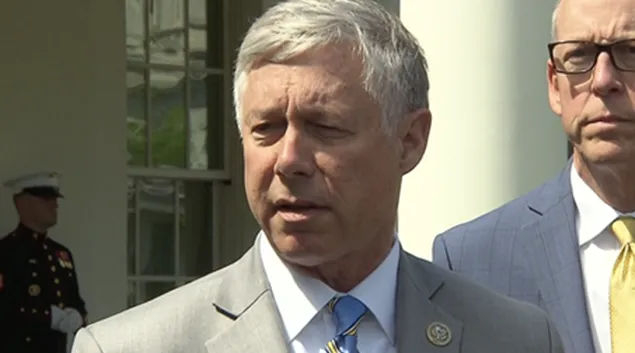
Two Republicans who recently said they opposed the current GOP healthcare bill have switched sides and are now behind it, raising GOP hopes of a vote by the end of this week.
Representatives Fred Upton of Michigan and Billy Long of Missouri, have reportedly given their endorsements to the bill, after meeting with President Trump on Wednesday.
White House spokesman Sean Spicer said Vice President Mike Pence was meeting with members on Capitol Hill about the bill. Long and Upton voiced support for the American Health Care Act Wednesday morning, Spicer said.
But the president has not set a certain date for a vote, Spicer said. The timing of the vote is up to House Speaker Paul Ryan and other leadership, he said.
[Also: Spending bill promises nothing to insurers, funds healthcare initiatives to fight opioid abuse]
Upton said Tuesday he opposed the bill because it would raise premiums for consumers with pre-existing conditions, in states that get waivers to the regulation. He introduced an amendment that would add $8 billion to the $130 billion in a federally-funded high risk pool for states getting the waivers.
Spicer was asked about Jimmy Kimmel's monologue, praised by former President Barack Obama in a tweet, in which the host of "Jimmy Kimmel Live!" revealed his baby son Billy had been born with a heart defect. Prior to the Affordable Care Act, families who didn't have health insurance and had a son with such a pre-existing condition, would likely be denied health insurance and possibly lose their son, Kimmel said.
"Well said, Jimmy," Obama tweeted yesterday. "That's exactly why we fought so hard for the ACA, and why we need to protect it for kids like Billy. And congratulations!"
"We share that concern for Kimmel's child as well as for any child that needs care," Spicer responded, adding, "That's why we're fighting so hard for this."
[Also: Readers pan all aspects of Trump's first 100 days dealing with healthcare]
The ACA is failing, Spicer said, giving Aetna's announcement that it would leave the market in Iowa, as an example. Aetna announced iin April that it would no longer offer a product in the ACA market in Iowa.
Spicer also was asked about an estimate by AARP that consumers with pre-existing conditions would pay $26,000 a year in premiums, and that $8 billion was not enough to lower these costs.
Spicer said not enough is known about the number of consumers who would fit the pre-existing condition category, or the number of states that would be asking for a waiver.
Republicans are reportedly two or three votes shy of the 216 needed to pass the amended American Health Care Act.
Rep. Jim Jordan of Ohio told Bloomberg, "We're real close."
Two healthcare organizations have not been won over by the revised bill, saying high-risk pools are not the answer to coverage.
The amendment to increase funding for American Health Care Act high-risk pools applies a bandage to a mortally wounded patient, said Bruce Siegel, MD, president and CEO of America's Essential Hospitals.
"The amendment changes in no material way the harm this bill would cause," Siegel said. "It strains credibility to suggest that $8 billion over five years for millions of sick Americans solves the pre-existing conditions dilemma. Our experience with high-risk pools finds them often underfunded and unable to stabilize insurance markets."
The American Medical Association said Wednesday that the revised bill would still result in millions of Americans losing coverage.
"High-risk pools are not a new idea. Prior to the enactment of the Affordable Care Act, 35 states operated high-risk pools, and they were not a panacea for Americans with pre-existing medical conditions," AMA President Andrew Gurman, MD, said. "The history of high-risk pools demonstrates that Americans with pre-existing conditions will be stuck in second-class health care coverage – if they are able to obtain coverage at all."
Those with underlying medical conditions would be charged vastly more for their coverage, Gurman said.
These individuals could lose their health insurance if states exclude certain conditions from being covered, the AMA said. States exclude conditions because high-risk pools typically operate at a loss, according to a January report from the American Academy of Actuaries, supplied by the AMA.
Twitter: @SusanJMorse